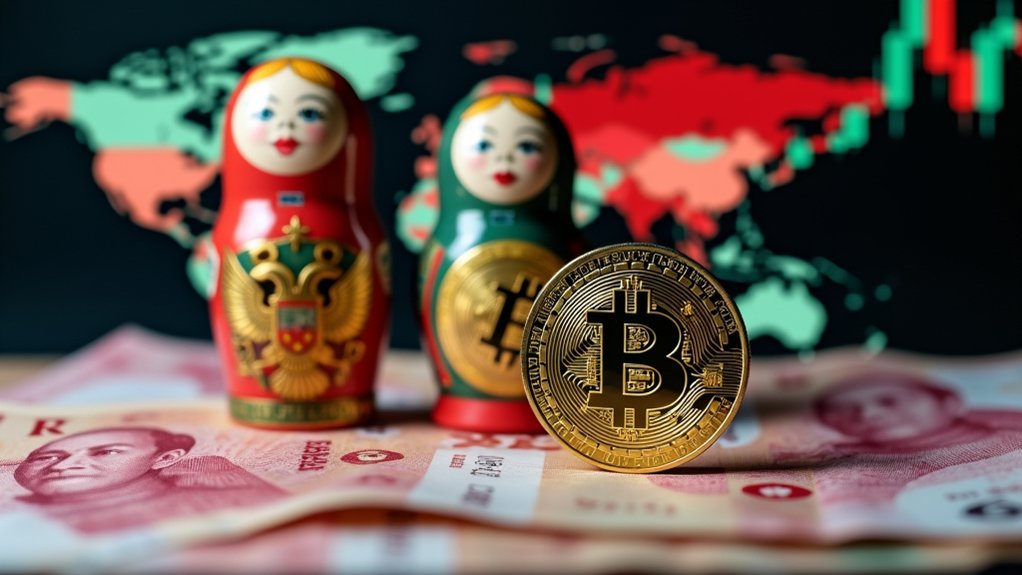Russia has slammed the door on Bitcoin as an investment option for its National Wealth Fund. Deputy Finance Minister Vladimir Kolychev made it crystal clear: cryptocurrencies are too volatile for the country’s $122.09 billion sovereign fund. No thanks.
The current structure of the NWF tells you everything you need to know about Russia‘s financial priorities. Up to 60% in Chinese yuan. Up to 40% in gold. Zero Bitcoin. They want stability and liquidity, not roller coaster rides.
“We need assets we can liquidate quickly without significant losses,” Kolychev explained. Makes sense. Sort of. The Russians aren’t exactly known for making impulsive financial decisions.
But here’s the plot twist. Russia hasn’t completely written off crypto. They’re just waiting for the right moment. If the NWF grows beyond 7-10% of GDP (it’s currently at 5.6%), they might reconsider. More money, more risk appetite. Basic economics.
Meanwhile, other countries aren’t sitting on their hands. The U.S. has been exploring a strategic cryptocurrency reserve. Even the Trump administration flirted with the idea. Russia? Playing it safe. Boring.
The Russian stance on crypto is complicated, to say the least. They recognize cryptocurrencies as assets and tax them at 13-15%. They use Bitcoin for international trade but ban crypto payments within Russia. Make up your mind, guys.
Western sanctions have obviously influenced this strategy. Russia’s entire financial playbook has been rewritten, ditching dollars, euros, and pounds in favor of yuan and gold. De-dollarization is the name of the game.
Interestingly, Russians themselves love Bitcoin. They hold about 69% of all cryptocurrency on exchanges. The government? Not so enthusiastic.
For now, the Finance Ministry, Central Bank, and President Putin are keeping crypto at arm’s length. But they’re watching. Waiting. If other nations successfully integrate Bitcoin into their sovereign funds, Russia might follow suit. They’re not leaders here. They’re followers. For once.
The opposition to cryptocurrency is particularly strong from Elvira Nabiullina, who as head of the Central Bank has consistently blocked efforts to embrace digital assets in the country’s financial system.
Unlike Bitcoin which operates on a decentralized network without requiring banks, Russia’s financial system remains firmly under centralized control.





